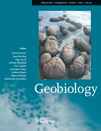
Geobiology
Scope & Guideline
Pioneering Research at the Crossroads of Ecology and Earth Sciences
Introduction
Aims and Scopes
- Biogeochemical Cycles:
Research focusing on the interactions between biological processes and geochemical cycles, including carbon, nitrogen, and sulfur cycles, and their historical changes. - Microbial Ecology:
Studies on microbial communities and their roles in various environments, from deep-sea hydrothermal vents to ancient sedimentary deposits, highlighting microbial contributions to biogeochemical processes. - Paleoenvironmental Reconstruction:
Analyses of ancient environments and ecosystems using geobiological evidence, including isotopic studies, fossil records, and sedimentological data. - Astrobiology and Mars Analogs:
Exploration of ancient Earth conditions and their implications for the search for life on Mars, utilizing terrestrial environments as analogs. - Sedimentary Petrology and Mineralogy:
Investigations into the mineralogical and chemical aspects of sedimentary rocks and their relationships with biological activity, including studies of microbialites and biofilms. - Evolutionary Biology:
Research on the evolutionary history of life, particularly the emergence of complex organisms and their interactions with changing environmental conditions.
Trending and Emerging
- Microbialites and Biogenic Mineralization:
Increased research into microbialites and their formation processes, emphasizing their role in ancient ecosystems and sedimentary structures. - Isotopic Biogeochemistry:
A growing number of studies utilize isotopic analyses to uncover past environmental conditions and biological processes, highlighting the importance of geochemical proxies. - Extreme Environments and Astrobiology:
Research focusing on microbial life in extreme environments, both on Earth and analogs for extraterrestrial conditions, is gaining traction, reflecting interests in astrobiology. - Interdisciplinary Approaches:
An emerging trend of combining methodologies from microbiology, geochemistry, and ecology to address complex geobiological questions, showcasing the integration of diverse scientific disciplines. - Impact of Climate Change on Microbial Communities:
Increasing attention on how current and future climate change scenarios affect microbial diversity and biogeochemical cycles, indicating a timely relevance of this research area.
Declining or Waning
- Traditional Paleontology:
There is a noticeable decline in studies centered solely on fossil identification without integrating geobiological processes, suggesting a shift towards more interdisciplinary approaches. - Static Environmental Models:
Research employing static models of ancient environments without considering dynamic biological and chemical interactions has decreased, reflecting a trend towards more integrative modeling techniques. - Descriptive Studies on Fossil Morphology:
Fewer papers focus exclusively on descriptive morphology of fossils, indicating a move towards functional and ecological interpretations of fossil evidence.
Similar Journals

BULLETIN OF GEOSCIENCES
Illuminating the Intersections of Geology and EnvironmentBULLETIN OF GEOSCIENCES, published by the prestigious Czech Geological Survey, stands as a pivotal resource in the fields of Earth and Planetary Sciences and Environmental Science. Since its inception in 2003, the journal has been committed to advancing knowledge through high-quality research, currently holding a commendable Q2 ranking in both disciplines. With its focus on diverse and innovative topics, BULLETIN OF GEOSCIENCES provides an essential platform for researchers, professionals, and students aiming to disseminate and access impactful studies. The journal is indexed in Scopus, ranking #78/195 in General Earth and Planetary Sciences and #110/233 in General Environmental Science, reflecting its significant contribution to academia. Publishing from Prague, Czech Republic, this journal invites contributions that illuminate the interactions between geological processes and environmental phenomena, ensuring an inclusive and accessible approach to crucial global issues.
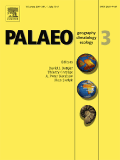
PALAEOGEOGRAPHY PALAEOCLIMATOLOGY PALAEOECOLOGY
Charting the Course of Climate and Ecosystem Change Through TimePalaeogeography, Palaeoclimatology, Palaeoecology, published by Elsevier and accessible via ISSN 0031-0182 (print) and E-ISSN 1872-616X (online), stands as a pivotal journal in the fields of Earth-Surface Processes, Ecology, Evolution, Behavior and Systematics, Oceanography, and Paleontology. With an impressive Impact Factor and ranking in the top quartile (Q1) across multiple categories, this journal facilitates cutting-edge research that explores the intricate relationships between past climates, environments, and ecosystems. Its scope encompasses a wide array of studies focusing on the geological and biological records that inform our understanding of contemporary ecological dynamics. Key objectives include advancing knowledge in palaeoecology and enriching discourse around climate change through rigorous research contributions. The journal's dedicated commitment to publishing high-quality, peer-reviewed articles makes it an invaluable resource for researchers, professionals, and students alike, providing insights essential for probing the factors shaping our planet's history. Positioned in the Netherlands and continuing its tradition of excellence since 1965, the Palaeogeography, Palaeoclimatology, Palaeoecology journal remains at the forefront of interdisciplinary research that bridges the past and future.
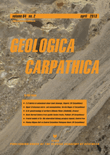
GEOLOGICA CARPATHICA
Fostering Innovation in Geological ResearchGEOLOGICA CARPATHICA, with ISSN 1335-0552 and E-ISSN 1336-8052, is a distinguished open access journal published by the Slovak Academy of Sciences Geological Institute, serving as a pivotal platform for the dissemination of research in the field of Geology. Established in 1991 and continuing through 2024, the journal is recognized for its significant contributions to Earth and Planetary Sciences, evidenced by its 2023 Scopus ranking placing it in the second quartile (Q2) within Geology. With an H-index that showcases its impactful publications, GEOLOGICA CARPATHICA is committed to fostering scholarly communication while promoting accessible research, having adopted an open access model since 2009. Located in beautiful Bratislava, Slovakia, this journal aims to engage a global audience of researchers, professionals, and students interested in ecological, geological, and environmental studies, making it a prominent resource for enriching the scientific community's understanding of the Carpathian region and beyond.

Geosphere
Connecting Researchers to the Heart of Earth ScienceGeosphere is a premier open access journal published by the Geological Society of America, Inc., dedicated to advancing the fields of geology and stratigraphy. Since its inception in 2005, this journal has established itself as a critical platform for sharing high-quality research, evidenced by its robust positioning in the 2023 Scopus rankings, where it holds the 12th rank in stratigraphy and 75th in geology. With an impressive impact factor and a commitment to open access since 2018, Geosphere facilitates the dissemination of significant findings to a global audience, making it an essential resource for researchers, professionals, and students alike. The journal's scope includes a wide range of topics related to Earth and Planetary Sciences, encouraging interdisciplinary collaboration and innovation. Based in the United States, Geosphere continues to foster a community dedicated to understanding the Earth's processes and resources, ensuring that it remains at the forefront of geological research.

Quaternary Science Advances
Pioneering Research for a Sustainable FutureQuaternary Science Advances, published by ELSEVIER, is a distinguished open access journal that has rapidly gained recognition in the fields of Earth and Planetary Sciences since its inception in 2020. With an impressive impact factor reflected by its Q2 ranking across various categories including Earth-Surface Processes and Geology, this journal serves as a vital platform for researchers and professionals aiming to advance the understanding of Quaternary environments and processes. Positioned within the 73rd percentile in Earth and Planetary Sciences and bolstered by a robust global readership, Quaternary Science Advances not only facilitates the dissemination of high-quality research but also encourages interdisciplinary collaboration. The journal’s open access model ensures that cutting-edge findings are readily available to students, researchers, and practitioners across the globe. With a commitment to promoting innovative studies from 2020 to 2024 and beyond, this journal remains a cornerstone for advancing knowledge within the dynamic landscape of Earth sciences.
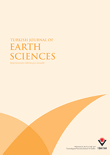
TURKISH JOURNAL OF EARTH SCIENCES
Shaping the Future of Geological ResearchTURKISH JOURNAL OF EARTH SCIENCES, published by the Tubitak Scientific & Technological Research Council Turkey, is a premier platform dedicated to advancing the field of Earth and Planetary Sciences. With an ISSN of 1300-0985, this journal has been a significant contributor to the international scientific community since its inception in 2002, and is set to continue publishing groundbreaking research through 2024. As a recognized journal in the Q2 quartile of Earth and Planetary Sciences, it ranks #98 out of 195 in its category according to Scopus metrics, positioning it within the 50th percentile of its field. The journal emphasizes peer-reviewed research, providing invaluable insights that facilitate scholarly discourse and promote rigorous investigation into various aspects of the Earth sciences. Although it does not currently offer open access, the journal remains a vital resource for academics, professionals, and students seeking to deepen their understanding of geological phenomena and contribute to the advancement of this essential discipline.
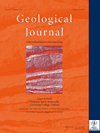
GEOLOGICAL JOURNAL
Elevating the conversation in Earth and Planetary Sciences.GEOLOGICAL JOURNAL, an esteemed publication by WILEY, has been at the forefront of geological research since its inception in 1951. With an ISSN of 0072-1050 and E-ISSN of 1099-1034, this journal serves as a vital platform for disseminating high-quality, peer-reviewed research in the field of geology. Operating out of the United Kingdom, the journal proudly features a Scopus rank of 80 out of 321 in the Earth and Planetary Sciences category, reflecting its commitment to scholarly excellence, with a 2023 category quartile ranking of Q2. As part of its innovative approach, GEOLOGICAL JOURNAL seeks to foster interdisciplinary collaborations, advancing our understanding of earth processes, materials, and history. Although it does not offer open access options, its robust subscription model ensures that both professionals and students have access to groundbreaking insights. With a publication history that spans over seven decades, the GEOLOGICAL JOURNAL continues to be an indispensable resource for the global geological community, encouraging discoveries that shape our comprehension of the planet.
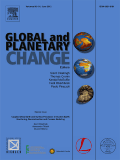
GLOBAL AND PLANETARY CHANGE
Advancing Knowledge for a Sustainable FutureGLOBAL AND PLANETARY CHANGE, published by Elsevier, is a premier international journal focused on the critical issues surrounding environmental science, climate change, and planetary dynamics. Since its inception in 1989, this journal has established itself as a leading voice in the field, currently holding a prestigious Q1 ranking in both Global and Planetary Change and Oceanography as of 2023. With a remarkable influence reflected in its Scopus rankings—15th in Earth and Planetary Sciences and 34th in Global and Planetary Change—it serves as an essential platform for researchers, professionals, and students. The journal provides a comprehensive examination of cutting-edge research findings and innovative developments that address the urgent challenges facing our planet. Although it is not an Open Access journal, it remains a vital resource for anyone keen to contribute to or stay informed on the ever-evolving discourse of global environmental change, promoting sustainable solutions for the future.

EARTH AND PLANETARY SCIENCE LETTERS
Fostering Scholarly Dialogue on Planetary ProcessesEARTH AND PLANETARY SCIENCE LETTERS, published by ELSEVIER, stands as a premier academic journal in the fields of Earth and Planetary Sciences, Geochemistry and Petrology, Geophysics, and Space and Planetary Science. Since its inception in 1966 and continuing to 2024, the journal has consistently maintained an impressive reputation, ranking in the top quartile (Q1) across several categories, highlighting its vital role in advancing scholarly research. With a Scopus ranking of #4 in both Geophysics and Geochemistry and Petrology, and a notable 97th percentile in multiple Earth sciences categories, EARTH AND PLANETARY SCIENCE LETTERS provides a platform for groundbreaking research, encouraging rigorous investigation and dissemination of knowledge. While not available as an Open Access publication, the journal remains highly accessible to academics and professionals worldwide, providing invaluable insights and fostering discussions that influence the future of Earth sciences. Whether you are a researcher, educator, or student, this journal is a crucial resource for understanding our planet and its processes.
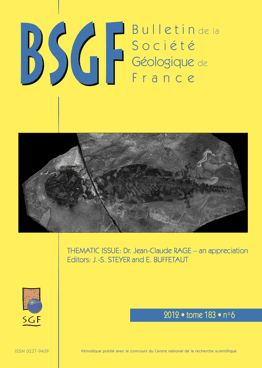
BSGF-Earth Sciences Bulletin
Illuminating Earth Sciences for a Sustainable FutureWelcome to the BSGF-Earth Sciences Bulletin, a premier open-access journal published by EDP SCIENCES S A that has been illuminating the field of earth sciences since its inception. With an ISSN of 0037-9409 and an E-ISSN of 1777-5817, this journal has established itself as a vital platform for disseminating significant research findings and innovative studies in Earth and Planetary Sciences. Operating out of France, BSGF is recognized for its rigorous peer-review process and its commitment to accessibility, having transitioned to open access in 2018. This stature is reflected in its outstanding rankings, placing it in the Q1 quartile within both Earth and Planetary Sciences and Geology disciplines, and ranking #35/195 overall in the Scopus database. Researchers, professionals, and students alike will find the BSGF invaluable for its high-impact articles, which span a wide array of sub-disciplines, addressing both foundational concepts and contemporary challenges in earth sciences.